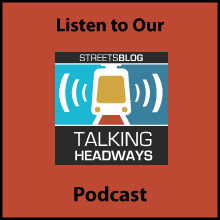The Overhead Wire Daily | Housing and Transport as Health Care
August 21, 2024
About five years ago we had folks on the podcast from Geisinger Health System in PA to talk about the importance of connecting transportation and patient care. One of the things we learned is that health care systems and patients lose out when people can’t make an appointment because they don’t have transportation. And it’s actually cheaper to provide a ride than have patients miss an appointment.
We also know that lack of transportation can lead to less care and negative outcomes. Recent surveys show that women without access to transportation are 17% more likely to miss getting preventative medical care. And many of those without access are younger women in Gen Z or Millennials.
On the housing side, states are starting to look to Medicaid to provide housing solutions for those patients that need it the most. A recent pilot project in Maryland asked for a Medicaid demonstration waiver in order to house patients with chronic conditions and repeated emergency room visits. The results of the pilot were astonishing. 71% of 615 participants went on to find stable housing because they had health and housing issues taken care of and could focus more on employment and education. Additionally, the number of people with multiple emergency room visits declined 37%.
Those are huge benefits but it also shows how our systems aren’t working to provide the access that people need. For example, why do we need to take from Medicare to provide housing to people that should be getting support through our housing policies? Or why should hospital systems have to create transportation services for patients when the transportation network should be robust enough to provide for them when needed? I’m sure we can talk about the deficiencies in the health care system overall but the deficiencies in housing and transportation are also translating to greater health care deficiencies.
Back in July Iowa Law Professor Greg Shill wrote a piece about the albatross of housing and transportation costs for low income Americans and how things are so expensive now some people are locked out of first class citizenship. I do believe his solution, an urbanism of abundance, also ties into our public health. That’s not to say that targeted programs for those who are in the emergency room the most wouldn’t be beneficial, but they could be a whole lot better if we did the main things right.
***
For this intro post and more news in your inbox every morning, sign up for a two week free trial of The Overhead Wire Daily, our popular newsletter established in 2006.







